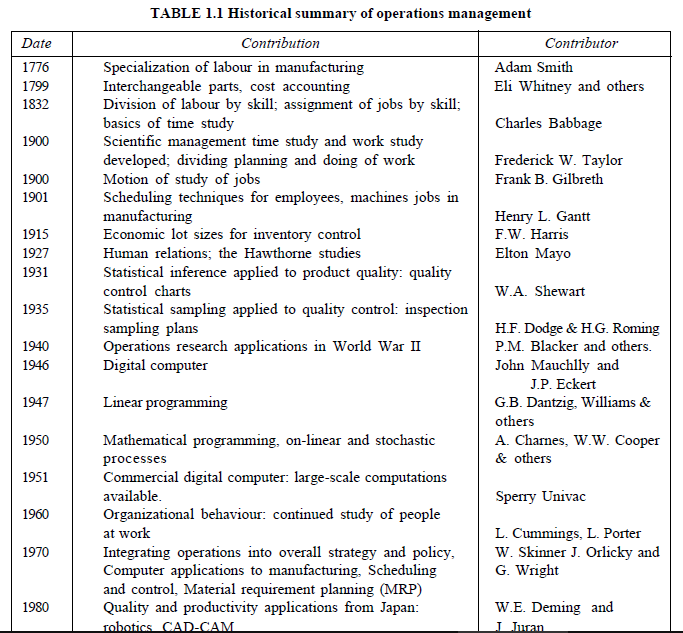For over two centuries operations and production management has been recognised as an important factor in a country’s economic growth.
The traditional view of manufacturing management began in eighteenth century when Adam Smith recognised the economic benefits of specialisation of labour. He recommended breaking of jobs down into subtasks and recognises workers to specialised tasks in which they would become highly skilled and efficient. In the early twentieth century, F.W. Taylor implemented Smith’s theories and developed scientific management. From then till 1930, many techniques were developed prevailing the traditional view. Brief information about the contributions to manufacturing management is shown in the Table 1.1.

Production management becomes the acceptable term from 1930s to 1950s. As F.W. Taylor’ s works become more widely known, managers developed techniques that focussed on economic efficiency in manufacturing. Workers were studied in great detail to eliminate wasteful efforts and achieve greater efficiency. At the same time, psychologists, socialists and
other social scientists began to study people and human behaviour in the working environment. In addition, economists, mathematicians, and computer socialists contributed newer, more sophisticated analytical approaches.
With the 1970s emerges two distinct changes in our views. The most obvious of these, reflected in the new name operations management was a shift in the service and manufacturing sectors of the economy. As service sector became more prominent, the change from ‘production’ to ‘operations’ emphasized the broadening of our field to service organizations. The second, more suitable change was the beginning of an emphasis on synthesis, rather than just analysis, in management practices.
Source: KumarAnil, Suresh N. (2009), Production and operations management, New Age International Pvt Ltd; 2nd Ed. edition.

Good day very cool website!! Man .. Beautiful .. Amazing .. I will bookmark your site and take the feeds additionally…I am glad to find a lot of useful info right here within the post, we’d like develop more strategies on this regard, thanks for sharing. . . . . .